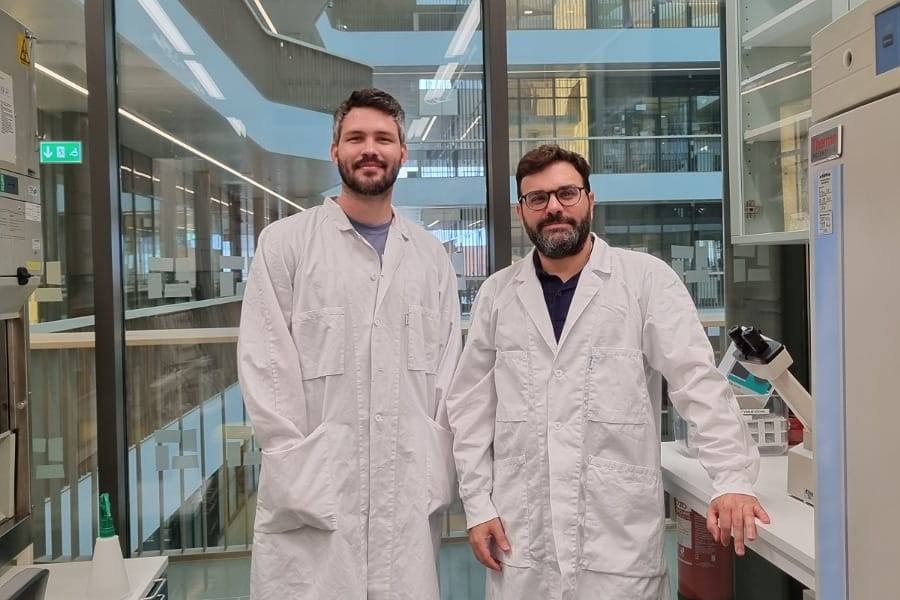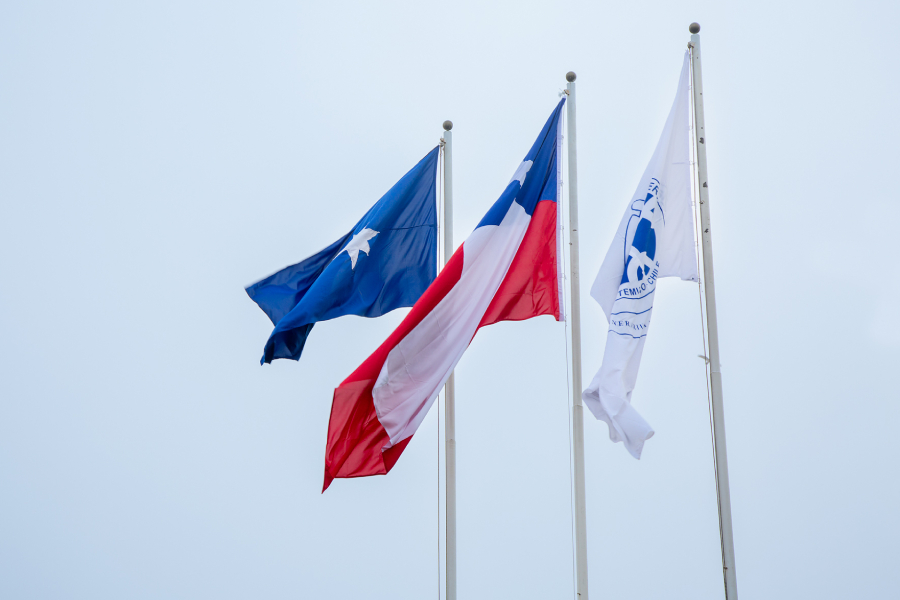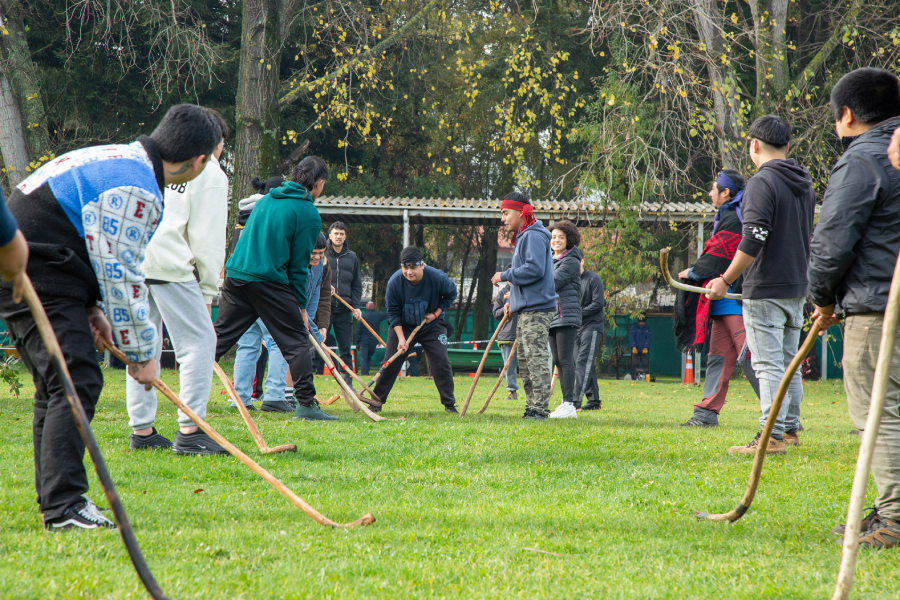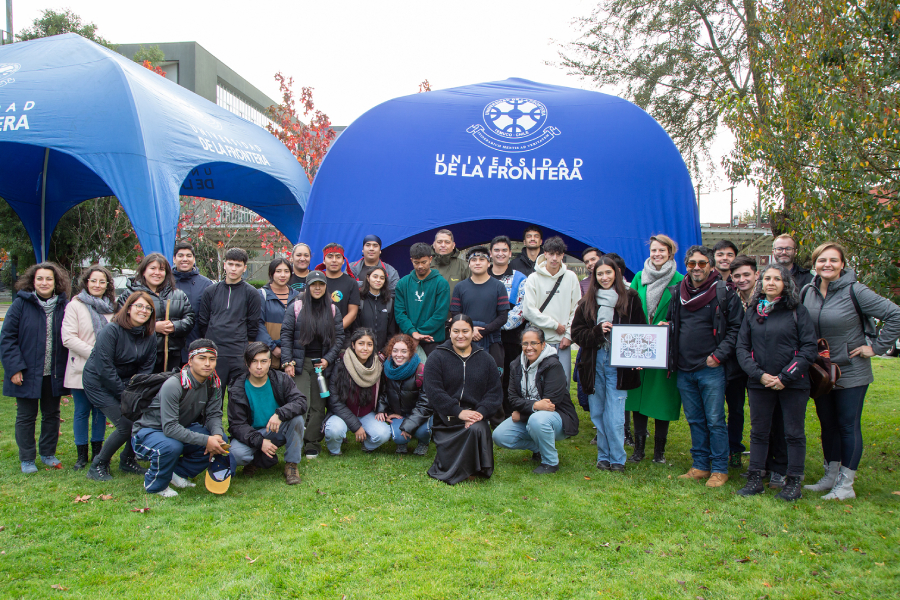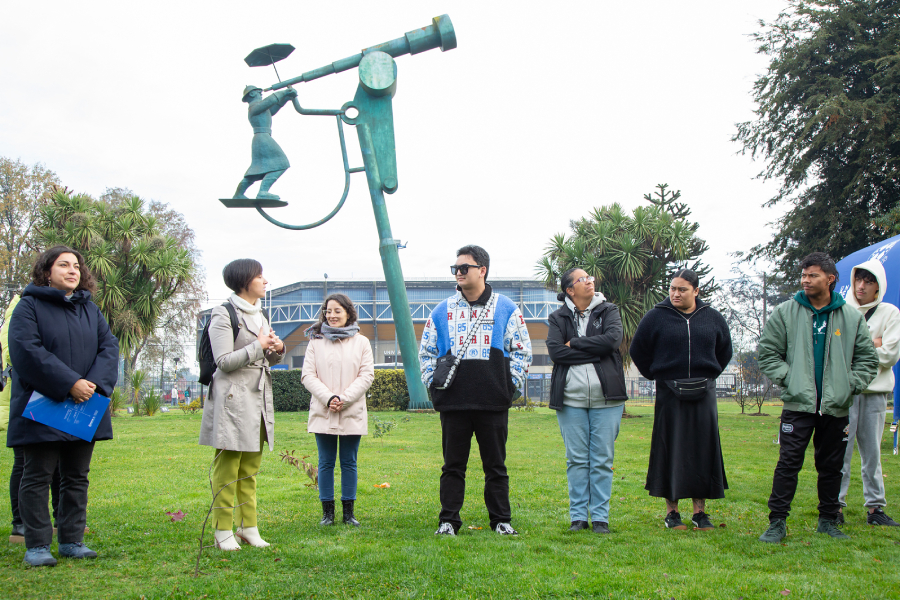|
Luis Martínez Durán joined the research team led by the academic Dasiel Borroto Escuela to investigate the cognitive phenomena related to molecular biology techniques and behavioural experiments. |
The doctoral student Luis Martínez Durán of the Doctorate in Science with specialization in Applied Cellular and Molecular Biology at Universidad de La Frontera (UFRO) went to Karolinska Institute in Stockholm, Sweden, for an international internship. He joined the Department of Neuroscience of the Institute, under the supervision of the academic Dr. Dasiel Borroto Escuela, a leading researcher in the field of neuroscience and neuropsychopharmacology, to focus on the understanding of alterations in heteroreceptor complexes located in the cell membranes of neurons and glial cells. “The objective of my internship is to elucidate molecular events related to learning and memory mechanisms through techniques such as in situ PLA and RNA-Flow Fish, as well as to determine the role of interactions between neuronal nicotinic acetylcholine receptors (nAChRs) and dopamine transporters (DAT) in cognitive phenomena,” explained Luis Martínez Durán. The student’s objectives are also part of the development of his line of research carried out at the Laboratory for Molecular Pharmacology and Medicinal Chemistry of UFRO, where the focus lies on cognitive phenomena related to molecular biology techniques and behavioural experiments. “This internship is a milestone for me, since the work is directly related to the objectives of my thesis; besides, it allows me to build a professional network for future collaborations and the development of new projects,” the student explained. According to Luis Martínez Durán, this experience is a great opportunity to broaden his horizons, to access new technologies, to get to know the work of colleagues from other parts of the world, and to grow professionally and personally. It is also worth mentioning that this internship is financed by the LANCE call “Complementary fund for the internationalisation of high impact pre-projects” of the project Ci2030. Written by: Doctorate in Science with specialization in Applied Cellular and Molecular Biology |
|
Thanks to the constant efforts, UFRO climbed up in the Times Higher Education Latin America University Rankings 2023, with results of excellence in the areas teaching, citations and industry income. |
Once again, the quality of Universidad de La Frontera (UFRO) was internationally recognized in the prestigious Times Higher Education (THE) Latin America University Rankings 2023, where UFRO managed to climb up compared to last year, to 59th place overall in Latin America. At the national level, UFRO is in twelfth place overall and in fourth place among the Chilean state universities. The Ranking, which is considered one of the most prestigious rankings in the world, assessed 197 institutions across 15 countries for its current report, including for the first time universities from Bolivia and Paraguay. The THE Latin America University Rankings uses the same 13 performance indicators as the THE World University Rankings, adjusting the weightings to reflect the characteristics of Latin American universities and evaluate them independently. The indicators are grouped into the areas teaching, research, citations, international outlook, and industry income, where UFRO presented results of excellence in teaching, citations and industry income. Dr. Renato Hunter Alarcón, the Vice-rector for Academic Affairs, was very satisfied with the results of UFRO in the Rankings, which reflect the efforts of the whole university community to maintain indicators of excellence and quality. “The result of this new report allows us to move forward towards the consolidation of UFRO as one of the leading universities in Chile. We are already ranked as the best university in the La Araucanía region and among the best 60 universities in Latin America, so these evaluations from external agents allow us to look at the future more calmly, but also challenge us to maintain and improve our institutional indicators, in order to be the best public and state university in the south of Chile,” he concluded. CLICK HERE TO SEE THE TIMES HIGHER EDUCATION LATIN AMERICA UNIVERSITY RANKINGS 2023
Written and translated by: UFRO Communications Office
|
|
From June 1 until June 27, Universidad de La Frontera celebrates the beginning of the new cycle and the return of the sun, which is known as “Wiñoy Txipantü” in the culture of the Mapuche people. |
With traditional Mapuche ceremonies, games, food, music and an oral competition, Universidad de La Frontera (UFRO) started the celebration of the beginning of the new cycle and the return of the sun, which is known as “Wiñoy Txipantü” in the Mapuche culture. The celebrations started on June 1, by raising the Mapuche flag on all of UFROs university campuses, which is called “Wüñelfe” or “Wenüfoye” in Mapudungun, the Mapuche language, and will last until June 27. The official programme for the celebrations was put together by a special committee, which is made up by different units of the university. “Our committee agreed on incorporating certain traditional symbols in the programme, such as the official flag of the Mapuche people, which was raised on all of UFROs campuses to give start to the celebrations,” said Osvaldo Curaqueo, the director of the Institute of Indigenous and Intercultural Studies. “The celebration and elaboration of this programme is another effort of the university to strengthen the intercultural relations both within the university, as well as within our regional context,” he added. Last Friday, the main activity took place on the official ceremonial space of the Mapuche people, the “Paliwe”, on the Andrés Bello Campus of UFRO, where the whole university community was invited to get together for a “Mizagun”, to try the traditional food of the Mapuche people and to immerse in the Mapuche culture. “We want to invite everyone of our university community to join the activities that are part of the official Wiñoy Txipantü programme, not only to celebrate, but also to get together to learn more about our ancestral culture and traditions. As a university community, we need to offer and promote more opportunities like this, since these activities also strengthen our efforts,” explained the director of the Institute of Indigenous and Intercultural Studies. Written and translated by: UFRO Communications Office
|
|
The program will provide a high-quality training for future professionals with a gender perspective, comprehensive expertise, regional commitment and the ability to confront the challenges of global citizenship. |
The Board of Directors of Universidad de La Frontera (UFRO) unanimously approved the implementation of a new undergraduate program in Special Education. The program will be part of the Faculty of Education, Social Science and Humanities and starts in the year 2024. With an emphasis on the general training of Special Education teachers, the future graduates of this program will have high social responsibility, a gender perspective, the ability to manage inclusion initiatives, regional commitment and the ability to confront the challenges of global citizenship. According to the dean of the Faculty of Education, Social Science and Humanities, Dr. Juan Manuel Fierro Bustos, “the program perfectly reflects the inclusive values of the Institutional Mission and UFROs Educational Model. In addition, it has an interdisciplinary approach that will allow us to develop inclusion initiatives together with other faculties. PROFESSIONALS The program consists of ten semesters, in which the students acquire the transversal skills to work in teaching and learning processes, multidimensional assessment, and diversity and inclusion management. “We are part of a society that makes constant progress in the recognition of education as a fundamental human right. In this context, this program also reflects UFROs commitment as a public university, by training professionals who will lead inclusion processes, promote the participation of each individual in learning processes and cultural and community activities, especially for those who were historically excluded because of their origin, socioeconomic status, culture, ethnic background, sexual orientation, gender identity or disabilities,” Patricia Pino pointed out. The director of Undergraduate Programs at the Faculty of Education, Social Science and Humanities, Abel Soto Higuera, commented: “We are very happy as a faculty and as a university about the implementation of this new program in Special Education, which will receive its first generation of students in 2024. This way, on the one hand, we will help to reduce the teacher shortage we are going to face in Chile in the near future, and on the other hand, we will help to provide equal chances for children, adolescents and the population in general, thus strengthening inclusion and diversity, which are very necessary in our society.” Written by: Faculty of Education, Social Science and Humanities |
|
The agenda promoted the dialogue and partnership between young students of the Māori culture and the Mapuche culture, with traditional rituals and games, a visit to the ‘Interactive Ruca’ of the Rural School Raluncoyan, and to the Pucon Campus of UFRO. |
Within the framework of the Nga Herenga Whakapapa (NHW) programme of the Embassy of New Zealand, a delegation of students and teachers of the Māori culture from New Zealand visited Universidad de La Frontera (UFRO) in Chile. The Embassy and UFROs International Affairs Office developed the agenda for the intercultural meetings, which are an important step forward regarding the Internationalisation Strategy of UFRO and Global Citizenship, which is an important pillar of the Educative Model of UFRO. Thanks to the programme and the collaborative work, these young indigenous peoples were able to share experiences and to get to know the current local reality. The director of the International Affairs Office, Paulina Latorre Bahamondez, explained: “These meetings are important for our international relationships. They allow us to connect with other cultures, other people and to get to know other knowledge. In addition, these initiatives are a concrete example of what we want to achieve as a university”. The Embassy of New Zealand and the International Affairs Office of UFRO put together a comprehensive work agenda, which included a ‘Mizawun’ (a space for knowledge exchange and conversation) at the Institute for Indigenous and Intercultural Studies of UFRO, with participation of UFRO students who are part of the RUPU Programme, which supports students of the Mapuche culture to settle into the university environment. According to the director of the Institute for Indigenous and Intercultural Studies, Osvaldo Curaqueo Pichihueche, the meeting took place “in a ceremonial environment, with individuals of each indigenous peoples, as a great moment to promote respect for and the importance of each ones identity”. “This initiative allows us to recognize and value our identities and knowledge, and to interact and share on the basis of the activities and protocols that are characteristic for each of these indigenous cultures,” he added. ACTIVE DIALOGUE BETWEEN CULTURES The Māori delegation and students of UFROs RUPU programme visited the Rural School Raluncoyan, where they had an interesting encounter with children of the community and the sector. Teachers and employees of the Municipal Department of Education in Temuco participated in this activity, together with their director, Marcelo Segura. PUCON CAMPUS The next day, the delegation visited UFROs Pucon Campus, where they held a ‘Llellipún’, which is a welcome ceremony in the Mapuche culture. In addition, they visited the Interactive Volcanological Centre of the La Araucanía Region and the Intercultural Village ‘Trawupeyüm’ in the city of Curarrehue. “The idea of these activities is to create and promote a cultural exchange, taking into account that this programme and the visit of the Māori delegation focus on getting to know the life of the indigenous peoples,” explained Janina Hanswillemenke, the organizer of these activities and the coordinator of internationalisation at UFRO. NGA HERENGA WHAKAPAPA Nga Herenga Whakapapa consists of young Māori students and entrepreneurs who want to be in contact with young indigenous students with similar ideas in the Chilean cities Santiago and Temuco. Nga Herenga Whakapapa describes the “binding of many family connections”, which is the basis for a significant relationship with their Chilean peers. In addition, this initiative gives the young Māori leaders the opportunity to have an intercultural exchange and global interaction, which they can apply in their future projects. Written and translated by: UFRO Communications Office
|





